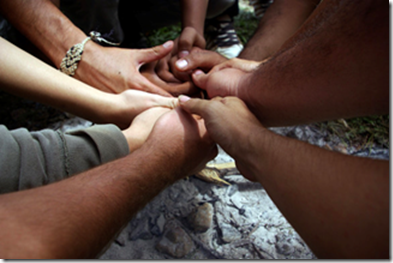What’s Your Resilience Profile?
Is resilience an individual problem or a social issue?
Social resilience implies that resilience is everybody’s business. Unless we look at resilience from a social and collective focus it will always be about ‘pulling your self up from your own boot straps’, ‘toughen up’ or ‘try harder’.
Most approaches to resilience have an individual focus and imply that the reason why people fall apart is their own individual fault. Social resilience argues that we are all connected to each other and that resilience is a community issue.
The evidence shows that we can have all the individual strength in the world but without a supportive community and social resilience things still fall apart. This is why I developed the yProfile. The yProfile diagnostic helps organisations understand their level of social resilience. It’s not good enough for people to be struggling on their own in an organisation that doesn’t understand their struggle.
Depression and anxiety are not a choice. Many situations we get caught in are not of our doing. If we get trapped in cycles of victimisation, bullying and harassment how can that be my fault? Do people even realise that things like bullying and harassment are socially constructed and organisationally allowed? Often organisations don’t realise that their culture fosters these things. The yProfile diagnostic helps pinpoint danger signs and indicators that are present in cultures that can later surface in toxic behaviours.
Recently I conducted a yProfile in an organization that didn’t realise that it’s ‘award process’ was bullying vulnerable young people. They had a t-shirt that was awarded each month to the least performing employee called the ‘Donkey Award’. The t-shirt was pink and framed including brass badges around the frame of various awardees. The CEO of the organisation thought this was a marvellous ‘fun’ initiative. Many organisations do not understand the core principals of social resilience and this is evidence of that. Could it be possible that your organisation are doing things that undermine social resilience? Is your organisation focused on individual resilience, blaming people for ‘falling apart’ whilst undermining resilience in various practices and behaviours?
There are ten critical criteria for assessing social resilience, these are:
· Health administration
· Workplace ethos
· Support services
· Work-life values
· Home-work ethic
· Influence and authority
· Resilience sustainability
· Practice and measures
· Health policy
· Communication semiotics
This is the defining structure of the yProfile diagnostic. It is from the yProfile methodology that these ten criteria demonstrate an organisation’s capacity for social resilience. One thing is for sure having a pink ‘Donkey Award’ is not funny and helps no-one.
For further information about social resilience or to book your yProfile diagnostic please contact communicate@resilyence.com
GABRIELLE CARLTON
M | 0407 220 094
W | www.resilyence.com
L | https://www.linkedin.com/in/gabriellecarlton




Bernard Corden says
It is another social atomisation experiment with hidden agenda. A quick glance at the sponsors provides enough evidence. It’s like the billboards that surround major sporting events, which offer credit, promote fast food and soft drinks and encourage gambling.
Rob Long says
I like many get concerned about the ‘R U OK?’ movement, I actually think it’s a counter productive movement and fosters an unhelpful tokenism about mental health. If there were to be a question about resilience it should be R We OK?
Dave Collins says
I’ve never felt ok with that either – I think it trivialises the issue and further ostracises the sufferers, it’s become a circus and a social media likes competition in some workplaces – I doubt many would know what to do if someone answered “no” but who would be brave enough to ruin the morning tea and balloons.